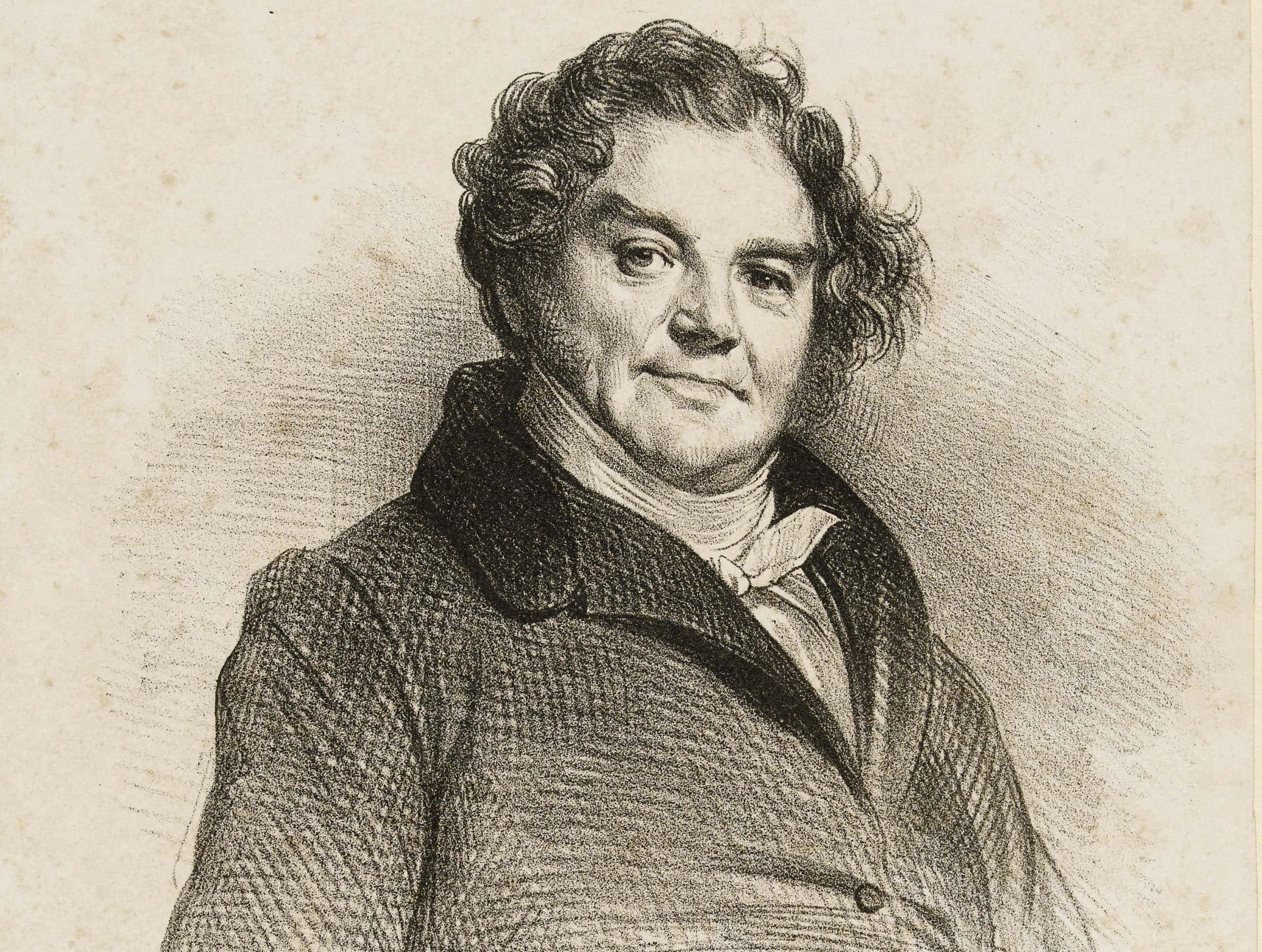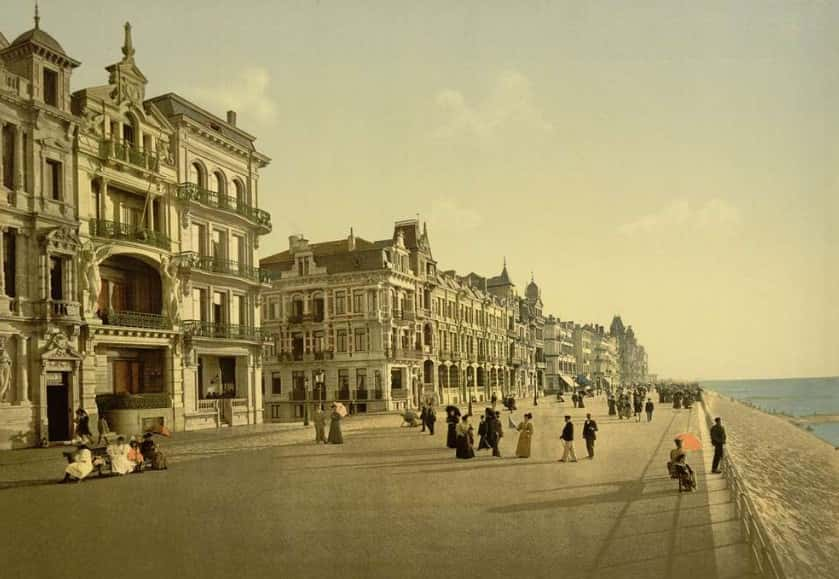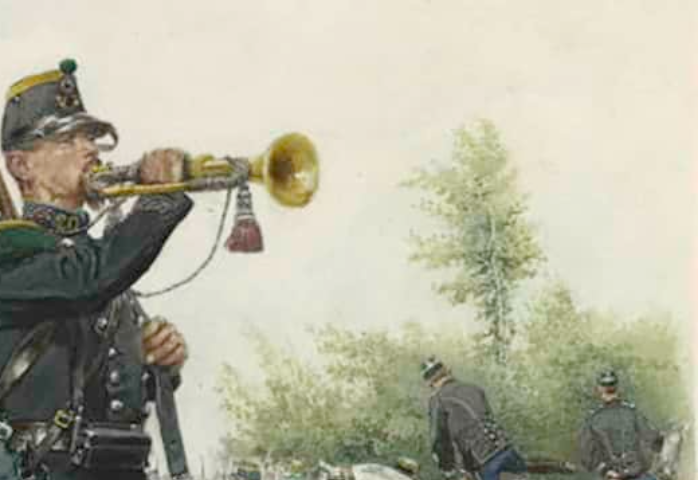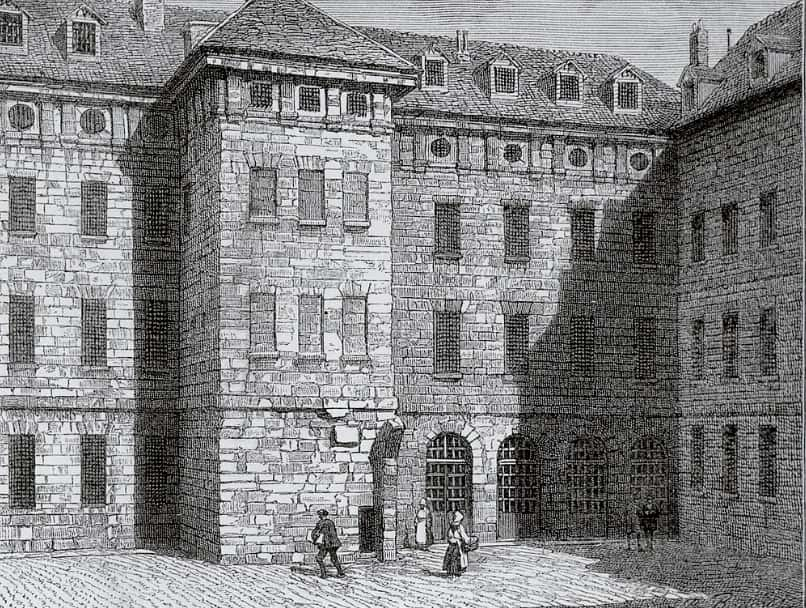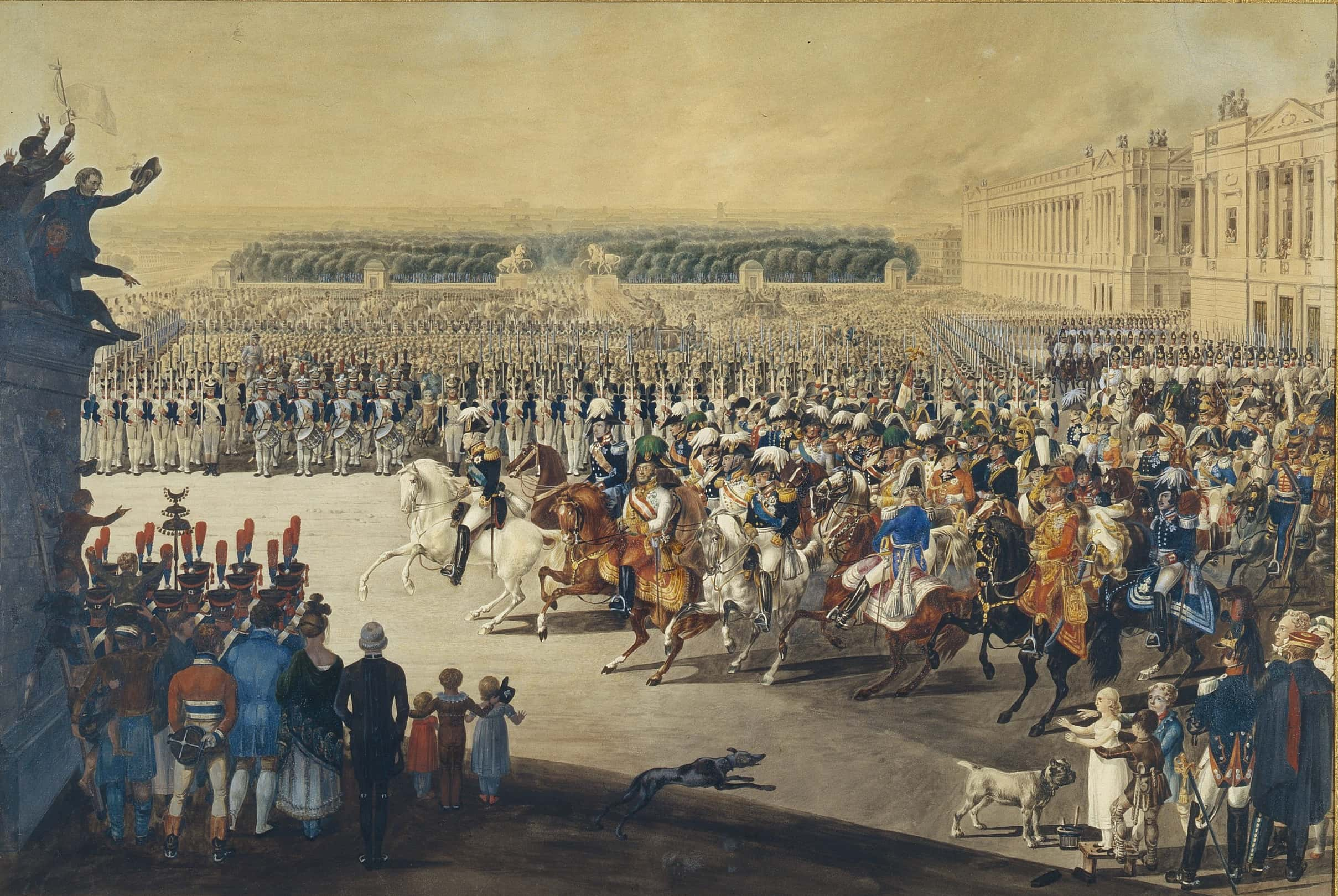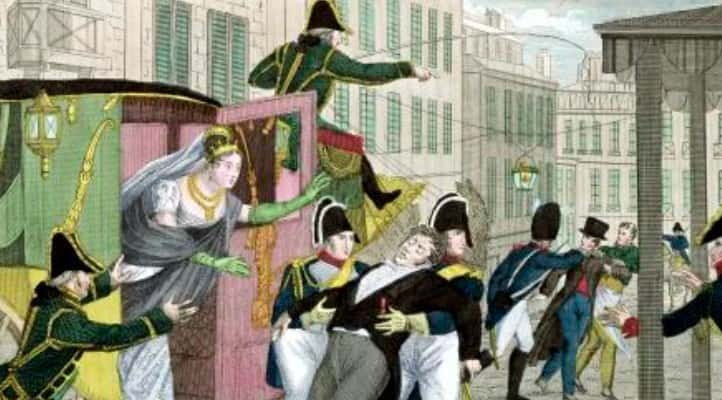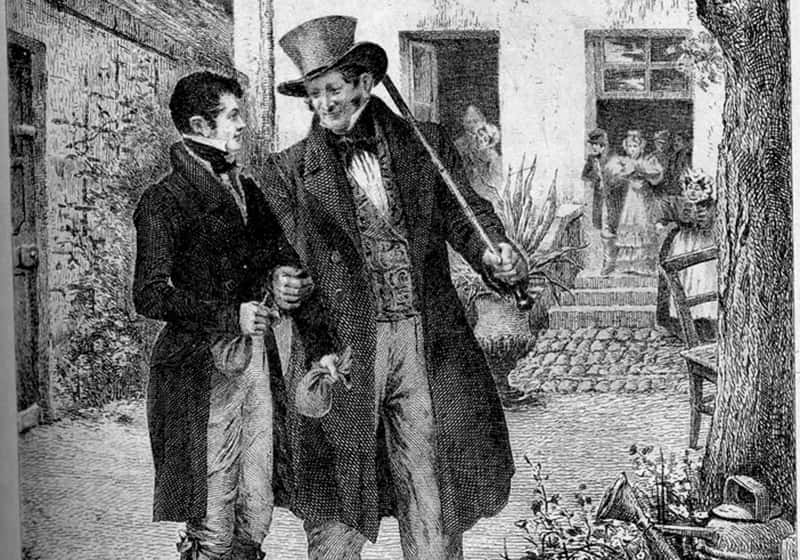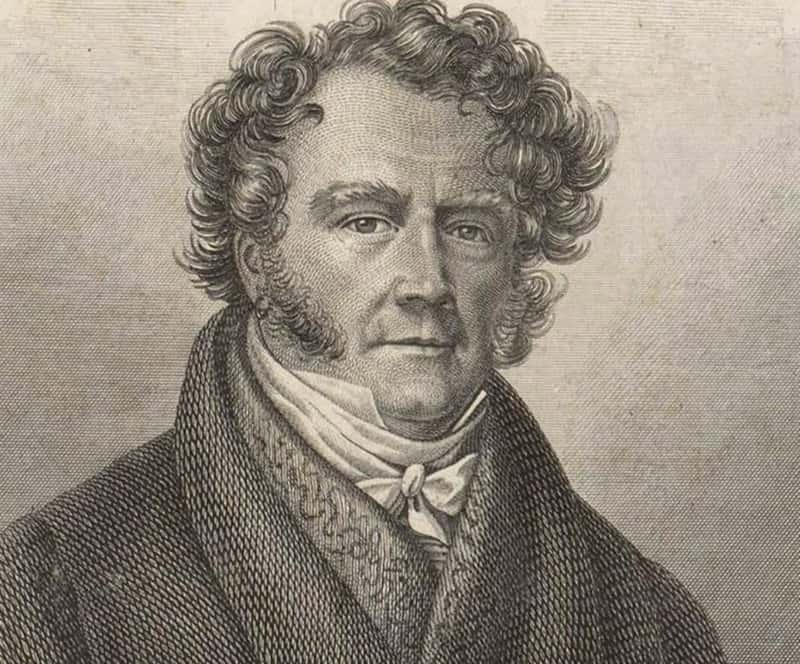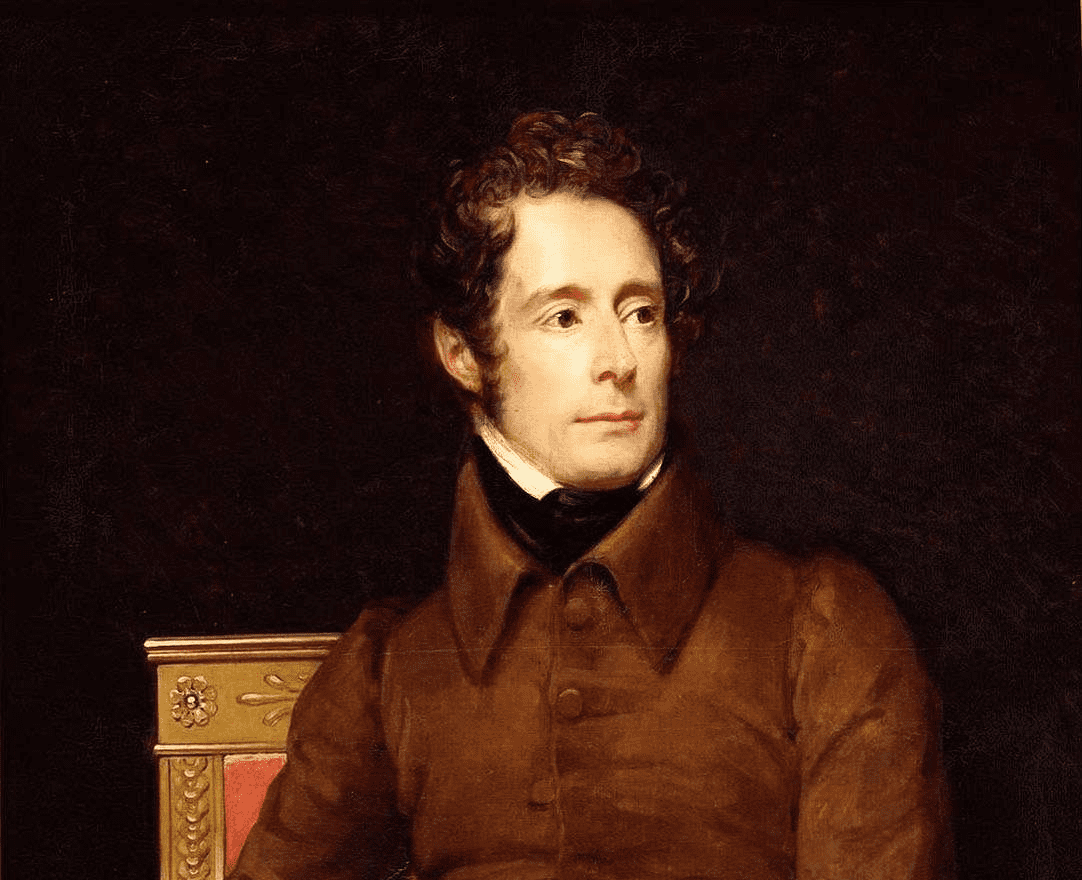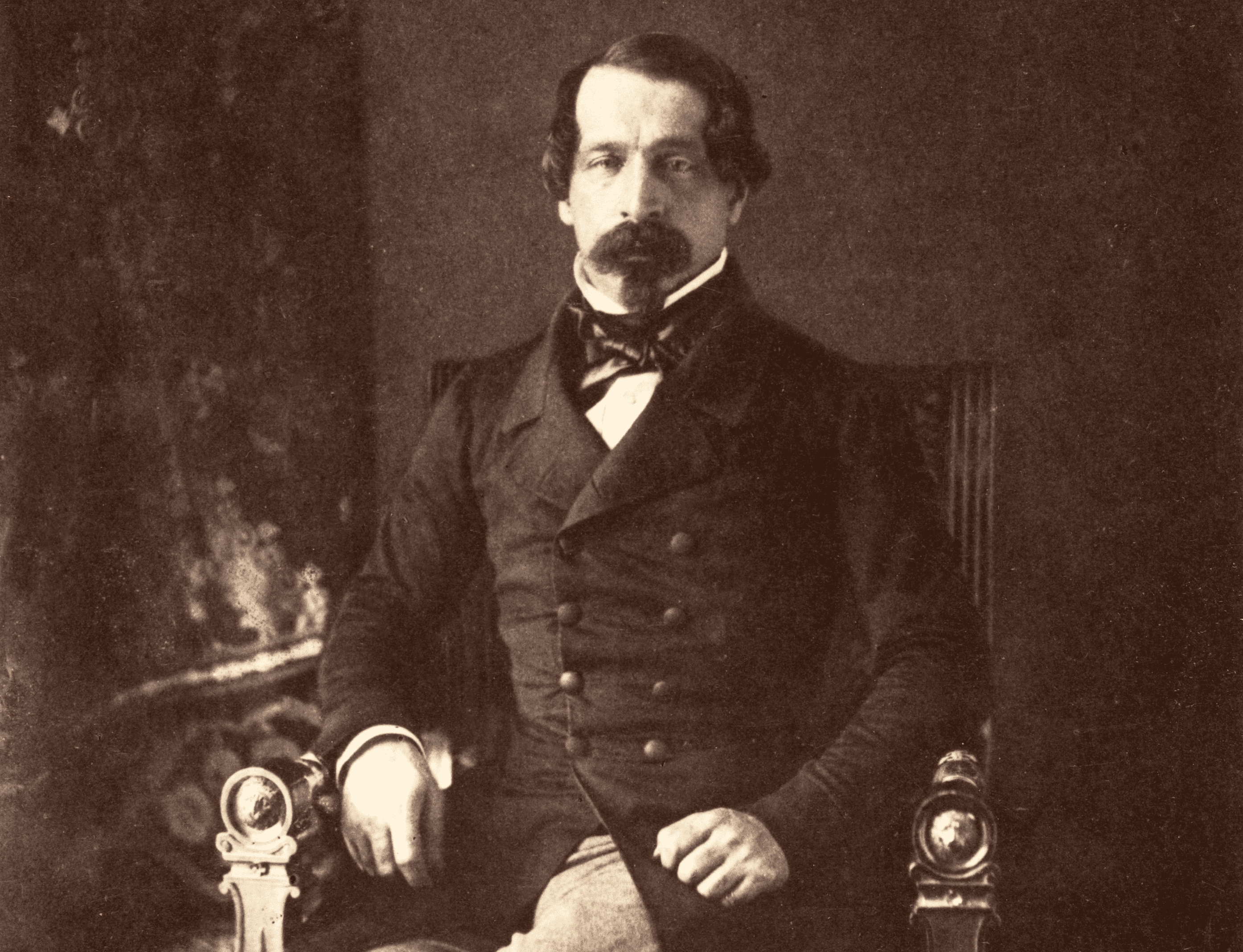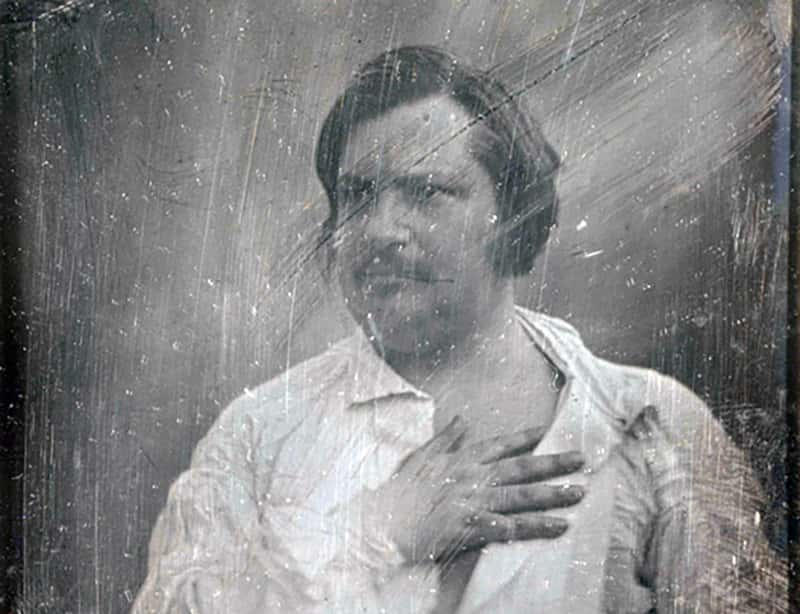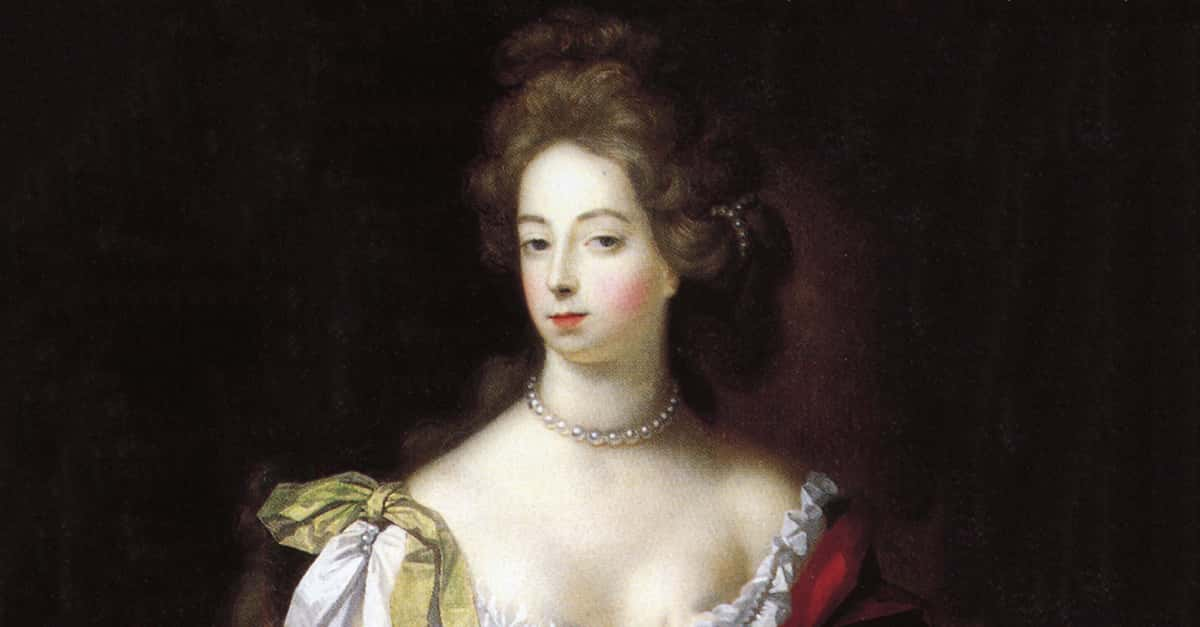Few have ever lived a life like Eugène François Vidocq’s. Known as the father of modern criminology, his adventures and feats fascinated the world. Yet, despite his glorious achievements, a history full of controversies and mistakes constantly dogged him.
1. He Didn’t Have A Hard-Knock Life
Eugène François Vidocq was born in July of 1775, in Arras, France to Nicolas Joseph François Vidocq and Henriette Françoise Vidocq. His father was a learned baker who made a fortune in dealing corn. He also had six siblings, one of whom met an early end before Eugène’s birth. Despite the comforts his parents provided him, they weren’t enough to quell his problematic tendencies.

2. He Had A Wild Streak
During his teenage years, Vidocq was a rebel without a cause. Although he was naturally intelligent and brave, he didn’t apply himself and was uncontrollable. It was also during this time that he made a name for himself as a tough fencer, earning the nickname le Vautrin, which means wild boar. Despite the early promise he showed, Vidocq chose to use his gifts for the worse.
3. He Had An Interesting Side Hustle
Like many teenagers, young Eugène had a part-time job. However, instead of choosing one that required honest work, he opted for a much darker path. Although his family was wealthy, Vidocq chose to rob people to independently support a comfortable lifestyle. Sadly, he was beyond redemption as his greed knew no boundaries. No one was safe from his devious plans.

4. His Victims Were Near and Dear To Him
Before long, robbing strangers wasn’t enough. Vidocq began to target his loved ones. At the age of 13, Eugène took and sold his parents’ silver plates, using the money to treat himself for the day. Three days later, the authorities detained and sent him to the Baudets, the local prison. At first, the story seemed to be a normal case—but Vidocq later learned there was more to the situation.
 The Emperor of Paris (2018), Mandarin Production
The Emperor of Paris (2018), Mandarin Production
5. The Table Turned On Him
Karma hit Vidocq when he least expected it. After his betrayal, his parents got a brutal revenge—and returned the favor. It turned out his father was the one who had him sent away, because he felt this was the only way to put a stop to Eugène’s endeavors. Vidocq found out about the elder Vidocq’s scheme 10 days after his arrest, and spent 14 days in prison.
However, after that, he became even more defiant.
 The Emperor of Paris (2018), Mandarin Production
The Emperor of Paris (2018), Mandarin Production
6. He Had A Devious Plan
Vidocq didn’t learn his lesson. Before he turned 14, he robbed his parents again and ran away to Ostend, intending to go to the Americas from there. Well, it didn’t work out. The wayward teenager received his comeuppance when he lost the money after getting conned. With no money and nowhere to go, Vidocq had no option but to stay in France.
7. He Was A Rolling Stone
Vidocq didn’t return home. Instead, he found employment working for a traveling band of entertainers, where he endured mistreatment. Eventually, he jumped ship and joined a group of puppeteers, but the boss kicked him out for flirting with his wife. For some time, he worked as a peddler’s assistant before he returned home and made amends with his family.

8. His Life Went In Another Direction
After his return, Vidocq chose a different path. In 1791, he joined the Bourbon Regiment, and soon, his fencing skills became well-known. As expected, the rowdy teen fought in 15 duels with two of them ending in the deaths of his opponents. Still, Vidocq only did a 14-day stint in prison, during which he assisted in the escape of an inmate. But his luck was about to run out.
9. He Left A Path Of Trouble
Vidocq’s habit of wreaking havoc followed him in his army career. This time, he didn’t get away with impunity. During his promotion ceremony, Vidocq struck a superior officer, who refused his demand to a duel. It was an offence punishable by death, so Vidocq ran away and joined the 11th Chasseurs while hiding his identity. For some time, the ruse worked, but he could only keep it up for so long.
10. His Friend Couldn’t Help Him
After being in the Chasseurs for a few months, Vidocq’s past caught up with him. Again, he ran away, but this time, with a general, who was also on the run after a failed rebellion. Shortly afterwards, Vidocq went back to the Chasseurs. After Vidocq’s friend pleaded for his case, the Chasseurs allowed Vidocq to return, but the damage had already been done. Vidocq quit the army and returned to Arras.
11. He Lived In The Underworld
Vidocq didn’t stay in Arras for long. There was a string of romances, a failed marriage, and another short stint in the army. After that, he found himself in Brussels, an infamous haven for convicts, in the fall of 1794. He turned to a dishonorable life and adopted the moniker Monsieur Rousseau, because as an army deserter, he didn’t have valid identification. Soon, he had company.
 The Emperor of Paris (2018), Mandarin Production
The Emperor of Paris (2018), Mandarin Production
12. He Joined An Unusual Army
Vidocq became a soldier again. This time, he joined the armée roulante—AKA the "flying army". Its men were real thieves who created their own system of operations and had a ranking system. During his time there, Vidocq gave himself the rank of hussar captain. He continued living under his invented guise, and his scheme worked out beautifully for him.

13. His Conscience Kicked In
As Monsieur Rousseau, Vidocq knew how to turn on the charm. He drew the interest of a rich widow. His accomplice persuaded her that Vidocq was actually an aristocrat in hiding due to the French Revolution. The two became engaged, but surprisingly, Vidocq couldn’t go through with the deception. He admitted his lies and left for Paris after receiving a large sum of money from her.
 The Emperor of Paris (2018), Mandarin Production
The Emperor of Paris (2018), Mandarin Production
14. Love Gave Him Problems
Vidocq’s womanizing ways cost him dearly. He spent all the money his former fiancée gave him on women. Later, he fell in love with another woman named Francine Longuet, but she ran off with an actual soldier. Vidocq’s reaction was brutal. In retaliation, he tracked them down and beat them. The soldier didn’t take this offense lightly and had Vidocq sent to prison for three months.
 The Emperor of Paris (2018), Mandarin Production
The Emperor of Paris (2018), Mandarin Production
15. He Lent A Helping Hand
Prison was a walk in the park for Vidocq. He had little trouble adjusting to his new digs and even made a few friends! Out of nowhere, one of them, Sebastien Boitel, suddenly received a pardon. Suspicious, the inspector examined the release documents the day after and realized they were fakes. An investigation followed, and Vidocq became a prime suspect.
 The Emperor of Paris (2018), Mandarin Production
The Emperor of Paris (2018), Mandarin Production
16. He Displayed His Genius
Vidocq was in deep trouble. He became implicated in his friend’s escape. According to him, two inmates took advantage of the fact that he had his own cell and asked to use it to write a document. But the two men countered that Vidocq was the mastermind and helped in the forgery. In the end, Vidocq remained in prison after serving his full sentence.
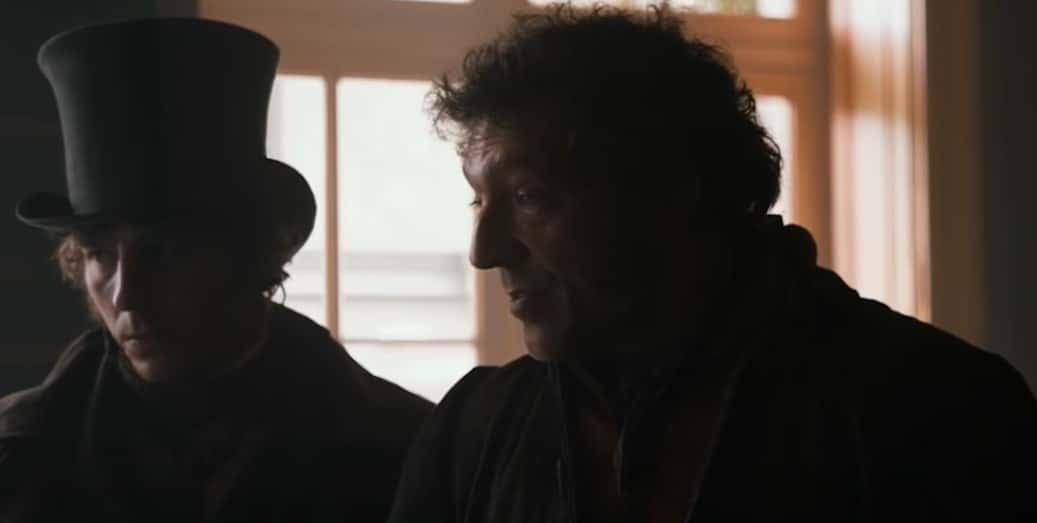 The Emperor of Paris (2018), Mandarin Production
The Emperor of Paris (2018), Mandarin Production
17. He Had A Surprising Collaborator
Unsurprisingly, Vidocq made several attempts to escape. He had an unexpected accomplice—his ex, Francine Longuet. Vidocq escaped a few times, but the authorities recaptured him. On one occasion, they told him they found Francine with stab wounds after she saw him with another woman. On top of forgery charges, he faced accusations of attempted murder.
Now, he had big problems.
 The Emperor of Paris (2018), Mandarin Production
The Emperor of Paris (2018), Mandarin Production
18. His Patience Paid Off
After a long wait, Vidocq had his trial. The judge found another accused, César Herbaux, and him guilty and sentenced them to eight years of hard labor. After several moves, Vidocq landed in a prison in Brest but escaped. The authorities caught him—but Vidocq had another ace up his sleeve. He stalled them long enough to give them the slip in a nun’s habit.
From there, he spent several years on the run.
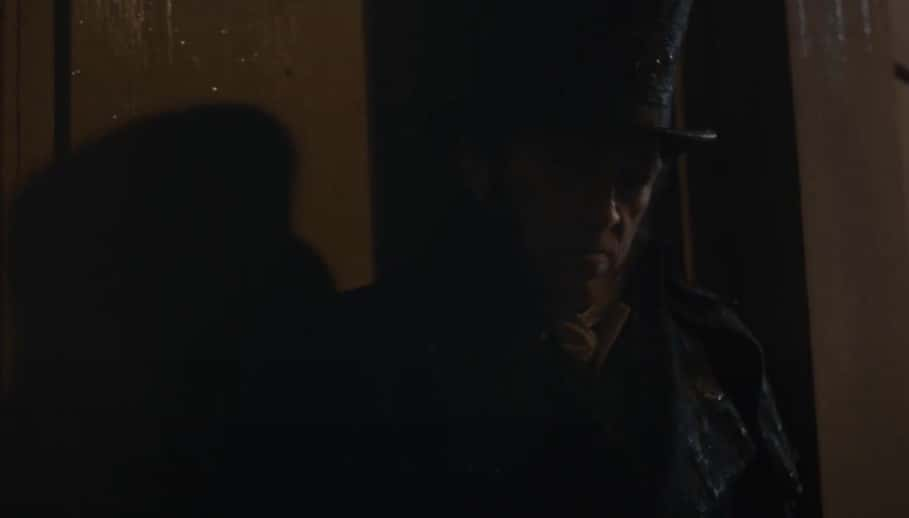 The Emperor of Paris (2018), Mandarin Production
The Emperor of Paris (2018), Mandarin Production
19. He Had A Few Close Calls
Over the next few years, Vidocq kept a low profile. For two years, Vidocq wandered around Europe. He was detained again, but escaped before making a return to Arras. He hid in his widowed mother’s home before he had to run because authorities figured out where he was. Vidocq took on the identity of an Austrian man and settled in Rouen with a widow in 1802. Things were looking good for him.
20. He Made A Mistake
Vidocq seemed to finally secure some stability. He established himself as a businessman and invited his mother to live with him in Rouen when he felt it was safe. But Vidocq had made a grave mistake. He’d severely overestimated his position. The authorities found and took him to Louvres, where he got bad news—he received the death sentence while he was at large.
Now, Vidocq’s life hung in the balance.
 The Emperor of Paris (2018), Mandarin Production
The Emperor of Paris (2018), Mandarin Production
21. He Fought For His Life
Vidocq was back at square one. This time, he fought back. With the help of a local official, Vidocq appealed his sentence and waited in prison for five months for his retrial. When his situation didn’t change, he chose to escape again. In November 1805, Vidocq saw his chance and fled through a window into the Scarpe River. Once again, he was a fugitive.
 The Emperor of Paris (2018), Mandarin Production
The Emperor of Paris (2018), Mandarin Production
22. He Reached A Turning Point
Vidocq spent the next four years as a man on the run (again). For a while, he stayed in Paris—and a chilling situation there made him stop in his tracks. There, he was present at the execution of César Herbaux, the inmate who stood trial with him many years ago. The event made Vidocq seriously reflect on his decisions in life, and he decided to turn over a new leaf.
But as a runaway convict, it was a tall order for him.
 The Emperor of Paris (2018), Mandarin Production
The Emperor of Paris (2018), Mandarin Production
23. His Past Haunted Him
Despite his best intentions, Vidocq faced an uphill battle in his bid to gain redemption. He moved a few times with his mother and a woman named Annette as he tried to rebuild his life as an honest businessman. However, he couldn’t get away from his past. Former associates recognized him and roped him into their illicit activities.
Then, his ex-wife tracked him down in Paris and extorted money from him. His time was up.
 The Emperor of Paris (2018), Mandarin Production
The Emperor of Paris (2018), Mandarin Production
24. He Made An Offer
Just before his 34th birthday, the authorities apprehended Vidocq. Tired of life on the run, he made them a special offer. He said he could be their mole. The officers accepted it, and he reported for duty—behind bars. A few months later, they placed him in La Force Prison, where he successfully uncovered intel, which Annette reported to Jean Henry, Paris’ chief, on his behalf. His work paid off for him.
25. He Gave A Great Performance
After years of struggle, Vidocq earned his freedom. He spent 21 months helping the authorities, and in return, Henry recommended him for a pardon, which Vidocq finally received. In March 1811, Vidocq left prison life in an unforgettable manner. To avoid the other prisoners from developing suspicions, Vidocq staged his release as an escape.
At last, he was a free man—well, sort of.
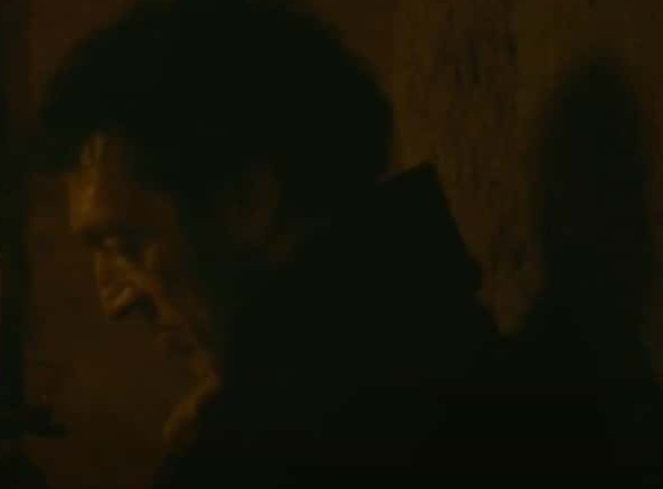 The Emperor of Paris (2018), Mandarin Production
The Emperor of Paris (2018), Mandarin Production
26. His Freedom Came With A Price
Vidocq was now a free man—on paper, that is. The truth was that he remained indebted to Jean Henry because the latter helped to secure his release. So, he continued to work as a spy for the authorities. Vidocq used his connections, resources, and reputation amongst felons to infiltrate the underbelly of French society. He turned out to be very good at it.
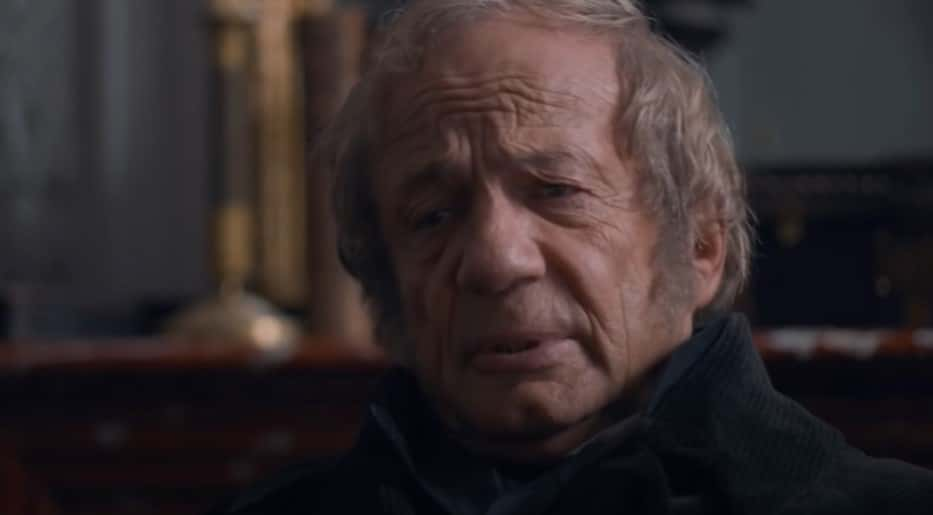 The Emperor of Paris (2018), Mandarin Production
The Emperor of Paris (2018), Mandarin Production
27. He Used His Talents For Good
Vidocq knew how to use his strengths. To gather intelligence, Vidocq dressed like an outlaw and mingled with real ones. Sometimes, he participated in jobs so he could make sudden arrests when needed. If his associates started to suspect him, he merely changed his cover and continued with his job. His work led to a monumental change in law enforcement.
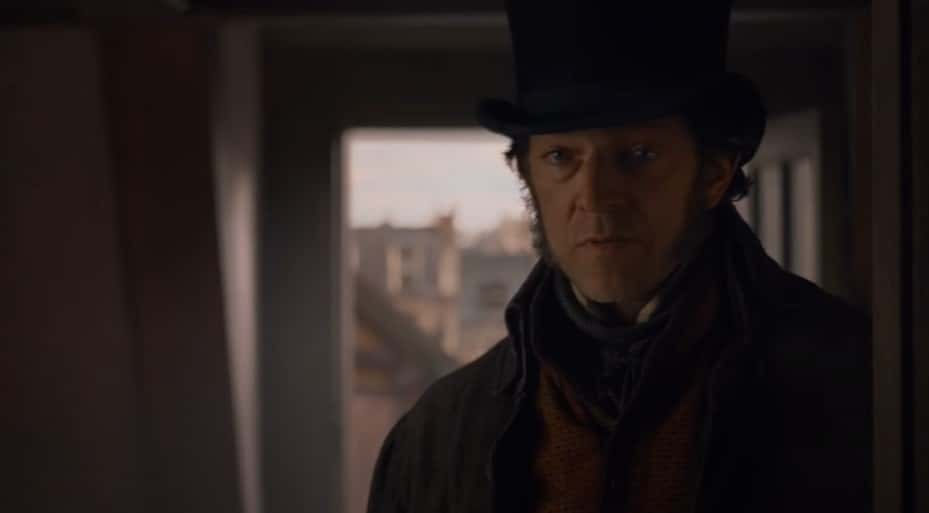 The Emperor of Paris (2018), Mandarin Production
The Emperor of Paris (2018), Mandarin Production
28. He Revolutionized Policing
Vidocq’s next contribution wouldn’t just turn his life around—it turned the whole country around. Toward the end of 1811, he unofficially established the Brigade de la Sûreté, a unit of plainclothes officers. Eventually, the authorities saw the unit’s usefulness and made it an official unit under the Prefecture of Police—with Vidocq as its leader.
By the end of 1813, Napoleon officially declared it a national law enforcement service and renamed it the Sûreté Nationale.
 The Emperor of Paris (2018), Mandarin Production
The Emperor of Paris (2018), Mandarin Production
29. His Recruits Had Special Qualifications
Over time, Vidocq built the Sûreté Nationale using a specific—and surprising—criterion. Most of the recruits, including his future successor, were newly released ex-convicts. Vidocq took a hands-on approach to his new role. He taught his recruits how to choose the right covers according to the job and worked in the trenches himself.
He even staged his own demise! The training proved to be effective.
 The Emperor of Paris (2018), Mandarin Production
The Emperor of Paris (2018), Mandarin Production
30. He Had The Right Stuff
In its early years, the Sûreté Nationale faced many tests. In 1814, the French Restoration broke out, and the Sûreté Nationale had to control the matter. Then, in 1817, Vidocq made 811 arrests, including 15 involving assassins. He further displayed his competence when he greatly clamped down on offences in Paris by 1820. Although his record was impressive, sinister rumors threatened to tarnish it.
31. His Methods Were Controversial
There was a dark cloud hovering over Vidocq’s newfound respectability. On top of his job as the head of the Sûreté Nationale, Vidocq had a side gig as a private detective. There were also whispers that he framed thieves and had his associates ready to arrest them at the locations. Still, there was never any confirmation of these claims.
There was, however, a thorn from the past.

32. He Received Shocking News
During this time, one of Vidocq’s past sins came back to haunt him. It turned out he was still on the hook for his old forgery sentence. The director of the prison in Douai kept contacting Vidocq’s bosses to address the issue, but they dismissed him instead. Eventually, the matter needed closure. Vidocq appealed the outstanding conviction and received support from an important person.
 The Emperor of Paris (2018), Mandarin Production
The Emperor of Paris (2018), Mandarin Production
33. He Had A Powerful Savior
Vidocq needed assistance to get a clean slate. Although he made positive contributions to France, his case still required some convincing. Finally, he found support from Comte Jules Anglès, the prefect of the Paris authorities. Anglès submitted a request for an official pardon to King Louis XVIII, who granted it on March 26, 1817. Vidocq was finally no longer a wanted man.
34. He Was Ahead Of His Times
During his time in the force, Vidocq did more than just investigate cases. Long before the existence of forensic science, he took a scientific approach to solve cases. He had the foresight to understand how science could help investigations and set up a small lab in his office. Although unauthorized by his superiors, his experiments led him to innovative approaches to fighting unlawful acts.
 The Emperor of Paris (2018), Mandarin Production
The Emperor of Paris (2018), Mandarin Production
35. He Became A Forger’s Nightmare
In those days, cheques and promissory notes were already in existence. Forgers would buy and alter them, so Vidocq came up with a solution. He contracted two chemists to create tamper-proof paper, which had chemicals that would smear upon alteration. Eventually, usage of the paper became widespread due to Vidocq’s promotion of it.
It wasn’t the only advance from Vidocq.
 The Emperor of Paris (2018), Mandarin Production
The Emperor of Paris (2018), Mandarin Production
36. He Had A Keen Eye
In investigations of cases, Vidocq put his experience and vast knowledge of offenders to good use. He often used evidence from the scenes along with his familiarity with convicts and their habits to find the culprits. In the case of a burglary in the Bibliothèque Nationale de France, Vidocq correctly identified the culprit based on the way he perfectly broke the door panel.
His natural instincts continued to serve him well.
 The Emperor of Paris (2018), Mandarin Production
The Emperor of Paris (2018), Mandarin Production
37. He Went Ballistic
Vidocq was one of the first known people to introduce the inspection of ballistics in investigations. When the Comte d’Arcy was a suspect in his wife’s demise, Vidocq examined the Comte’s pistols. They hadn’t been used or cleaned. The bullet taken from the Comtesse’s head was also too big for them. Vidocq found the pistol which the bullet fit into in a surprising place—along with the Comtesse’s jewelry.
They were in the apartment of her lover, who eventually confessed.
 The Emperor of Paris (2018), Mandarin Production
The Emperor of Paris (2018), Mandarin Production
38. He Faced New Challenges
The political atmosphere in France was about to change things for the Sûreté Nationale. Comte Anglès left his position after the slaying of the Duc de Berry. The religious Guy Delavau replaced him and imposed piety on the force. The conservative Charles X became the new King of France. Jean Henry, Vidocq’s boss, retired, and Marc Duplessis ultimately succeeded him.
Everything changed it an instant—and then, it all started to go downhill.
39. His Career Reached A Crossroad
Vidocq and Duplessis got along like oil and water. They didn’t see eye to eye on the Sûreté Nationale’s operations. A reserved man, Duplessis opposed Vidocq’s subordinates spending time in unfavorable places. Vidocq countered that it was essential to do their work. In the end, Duplessis formally gave Vidocq two warnings.
It was the last straw for Vidocq, who quit shortly after.
 The Emperor of Paris (2018), Mandarin Production
The Emperor of Paris (2018), Mandarin Production
40. He Embarked On A New Venture
Free from the politics of the force, Vidocq moved onto the next chapter of his life. Now a wealthy man, he started a paper factory and hired male and female felons. Still, people took exception to his new enterprise. The business also required a lot of capital, and people didn’t want to pay a premium for products made by ex-convicts.
Eventually, Vidocq became bankrupt, but there was hope on the horizon.
 The Emperor of Paris (2018), Mandarin Production
The Emperor of Paris (2018), Mandarin Production
41. He Made A Comeback
Vidocq returned to the Sûreté. While he focused on his business, his former superiors, Delavau and Duplessis, had to quit, and Charles X stepped down from the throne. Henri Gisquet, the new prefect of the Sûreté Nationale, offered Vidocq his old job when he provided valuable assistance in solving a burglary case. He was back on top—but he couldn’t celebrate for long.
 The Emperor of Paris (2018), Mandarin Production
The Emperor of Paris (2018), Mandarin Production
42. He Couldn’t Stay Out Of Trouble
It wasn’t long before Vidocq faced new controversy. Political tensions were high in France, and they erupted in riots, which put the monarchy at risk. There were claims the Sûreté used harsh tactics on the rioters, resulting in divisions within the force. With their reputations hanging on by a thread, Vidocq and the Sûreté faced more criticism in the aftermath.
 The Emperor of Paris (2018), Mandarin Production
The Emperor of Paris (2018), Mandarin Production
43. The Final Hit
The rumors about Vidocq and his group got personal. There were allegations Vidocq staged the burglary that led to his return to the Sûreté. Although Vidocq dodged prison time, his subordinate received a two-year sentence. Lastly, the backgrounds of Vidocq and his associates fueled the argument that they weren’t fit to be officers.
Left with no choice, Vidocq quit. The Sûreté disbanded, only to be reinstated later with men with clean records.
 The Emperor of Paris (2018), Mandarin Production
The Emperor of Paris (2018), Mandarin Production
44. He Was A Pioneer
In 1833, Vidocq tried his hand at business again. He opened Le bureau des renseignements, which provided private investigative and security services to businesspeople and private citizens. Many deem it to be the first detective agency. Vidocq ran his business in the same way he led the Sûreté—by mostly employing reformed convicts. As usual, his methods got him in hot water.

45. He Ruffled Feathers
Vidocq clashed with the official force over his operations. Sometimes, he used unlawful practices and his connections with government groups. On November 28, 1837, the authorities seized more than 3,500 files and documents. A few days later, they detained Vidocq, who spent over a month in prison, on charges of fraud and bribery before he was cleared of them. But it wasn’t over.
46. His Enemies Hatched A Plan
Vidocq’s rivals grew jealous of him. His thriving business continued to draw the ire of the authorities—who finally went for the jugular. In the summer of 1842, they went to his office and detained him on the charge of the misappropriation of funds. Vidocq had unlawfully detained a swindler and ordered a formal return of the money.
He waited in prison for a few months for his trial to start, not realizing how bad things were about to get.
47. He Messed With The Wrong People
In the spring of 1843, Vidocq finally stood trial. There was a snag—the judge was a friend of the prefect of the Sûreté Nationale. During the hearings, his dealings in other cases came to light. He faced scrutiny over his money lending business and the abductions of women forced into monasteries. The judge gave him a five-year sentence and fined him.
Luckily for Vidocq, he still had supporters.
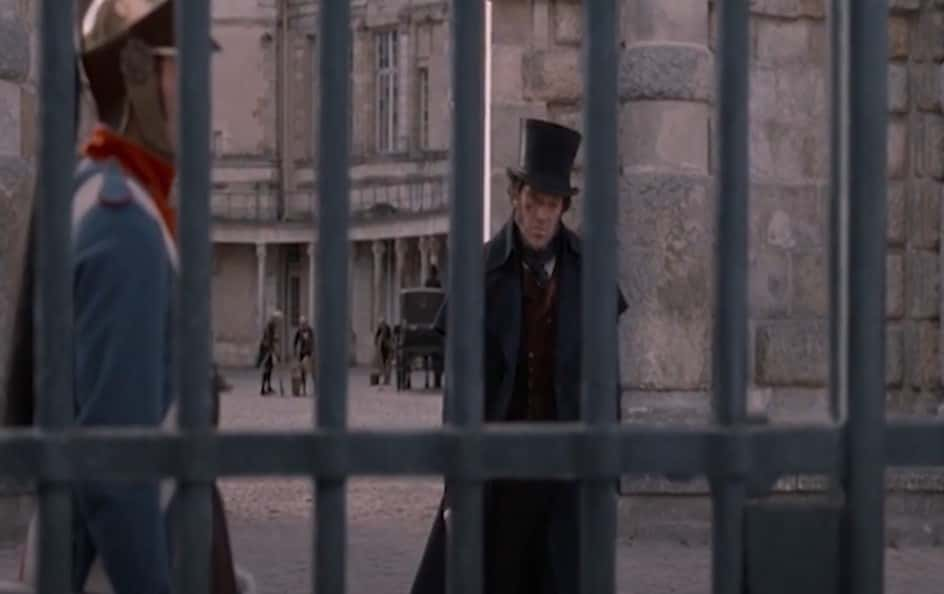 The Emperor of Paris (2018), Mandarin Production
The Emperor of Paris (2018), Mandarin Production
48. He Didn’t Back Down
Vidocq didn’t go down without a fight. He appealed the judgment and received a retrial thanks to support from friends, such as Count Gabriel de Berny and the attorney general, Franck-Carré. A different judge presided over the session, which lasted for a few minutes, and overturned the sentence. Vidocq was a free man—but now he had bigger problems.
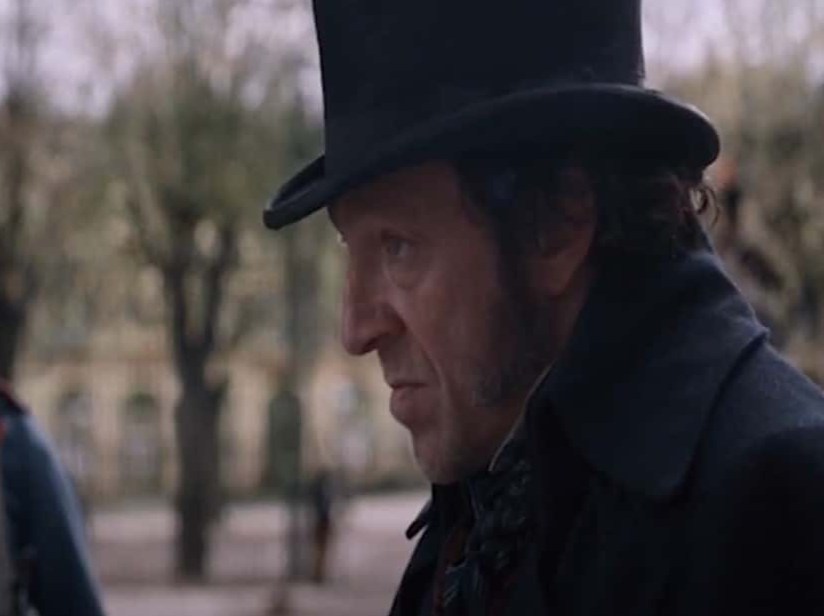 The Emperor of Paris (2018), Mandarin Production
The Emperor of Paris (2018), Mandarin Production
49. His Downward Slide Continued
The trial was the least of Vidocq’s problems. He spent a fortune fighting the charges. The bad publicity from the trial affected his reputation and business. In addition, the prefect of the Sûreté Nationale attempted to banish him from Paris due to his past. Vidocq had thoughts of selling his business, but he couldn’t find a suitable buyer. Still, he tried to turn his fortunes around.
 The Emperor of Paris (2018), Mandarin Production
The Emperor of Paris (2018), Mandarin Production
50. He Tried To Turn The Tide
Vidocq tried to reverse the damage done to his name. He published a few books to fight the allegations and wrote about the prison system and capital punishment. In 1848, the February Revolution ended the monarchy, and Vidocq saw an opportunity. He offered his services to the new interim government formed under Alphonse de Lamartine.
They accepted and gave him a shady job.
51. He Had A Foot In Both Camps
For better or for worse, Vidocq put his experience to use. He spied on Lamartine’s political rivals, such as Louis-Napoléon Bonaparte, but it was the wrong move as the government quickly collapsed. Lamartine lost the election to Bonaparte, who became the president of the Second Republic. Seeking to reverse his fortunes, Vidocq then offered his help to Bonaparte, who rebuffed him.
52. His Misfortunes Continued
Things didn’t get any better for Vidocq. He primarily retreated from public life. In addition, his finances suffered from bad investments, so he lived a simple life. After barely surviving a bout of cholera, Vidocq’s health took a turn for the worse. On May 11, 1857, he quietly took his last breaths. Although recognition eluded him in life, Vidocq’s legacy ensured his achievements will never be forgotten.
 The Emperor of Paris (2018), Mandarin Production
The Emperor of Paris (2018), Mandarin Production
53. He Attracted A Different Crowd
During and after his lifetime, Vidocq’s exploits reached far and wide, inspiring writers. His friend, the author Honoré de Balzac, used him as the inspiration for several characters in his works. Victor Hugo also modeled the protagonist and antagonist in Les Misérables on him. Edgar Allan Poe allegedly got the idea for "The Murders in the Rue Morgue", which many consider to be the first detective story, after hearing a story about Vidocq.
The admiration didn’t just end there.
54. His Legacy Continued
Many years after the end of his life, Vidocq’s contributions to criminology became more widely acknowledged. In 1990, forensic artist and sculptor, Frank Bender, established the Vidocq Society, which brings together people with the relevant skills to solve unsolved cases pro bono. The group’s purpose is to bring justice to the world. Membership is exclusive as numbers are capped at 81, the age when Vidocq’s life ended. Vilified and doubted in life, Vidocq has finally become the hero of his own story.


